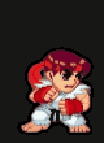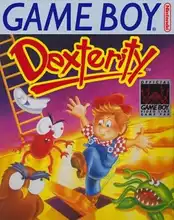Remember a time when gaming didn't require a 100-hour commitment or a degree in control schemes? Back when popping a coin in an arcade cabinet or blowing into a cartridge was the most complex part of the experience? That's the magic of Casual Games from the retro era. These aren't the epic RPGs or sprawling adventures that demand your life savings in time; they're the pick-up-and-play gems that offered instant gratification and simple, pure fun.
For many of us, these easy-to-access titles were our first taste of gaming, or the perfect palate cleanser between longer sessions. They represent a golden age of intuitive design where the goal was clear, the controls were simple, and the challenge was addictive, not overwhelming.
What Makes a Retro Game "Casual"?
It's not just about being "easy," though many are. For retro titles, "casual" often means:
- Simple Controls: Usually just a joystick and a button or two. Think Pac-Man or Pong.
- Immediate Action: No lengthy tutorials or setup. You're often playing within seconds of booting up.
- Short Sessions: Perfect for quick bursts of fun during a break. You can play a round of Tetris or a level of Super Mario Bros. and feel satisfied.
- Clear Objectives: Eat dots, clear lines, jump on heads, beat the high score. No complex quest logs needed.
- High Replayability: The simple loops make you want to play "just one more time."
This focus on accessibility is precisely why these games have endured.
The Enduring Charm of Old-School Casuals
Why do we still boot up these ancient titles when modern blockbusters are readily available?
Part of it is undoubtedly nostalgia. These games are tied to cherished memories – arcades, sleepovers, rainy afternoons indoors. But beyond that, they possess a timeless design purity. They stripped away complexity and focused on core gameplay loops that are inherently satisfying. They proved that innovation could come from simplicity, creating experiences that are universally understandable and enjoyable, regardless of language or gaming expertise.
Our Go-To Retro Casual Games
Looking back through the archives, countless games fit this bill. Here are a few types and examples that capture that classic casual spirit:
- Arcade Addiction: Before home consoles, these were the kings of quick fun.
- Pac-Man / Ms. Pac-Man: Chase, evade, eat dots. The perfect loop.
- Donkey Kong: Simple platforming and pattern recognition.
- Pong: The ultimate minimalist sport.
- NBA Jam: Over-the-top, simple two-on-two basketball with personality. "He's on fire!"
- Console Couch Co-op & Competition: Many early console hits were built for shared, simple fun.
- Super Mario Bros. / Duck Hunt (NES): One minute jumping, the next shooting ducks with a light gun. Iconic simplicity.
- Super Mario Kart (SNES): Easy to learn racing with chaotic items. Still a party staple.
- Puzzle Masters: Perfect for short, brain-tickling sessions.
- Tetris (Various): The king of falling blocks. Pure, addictive logic.
- Simple Beat 'em Ups: Walk right and punch!
- Double Dragon (Arcade/NES): Basic brawling fun with a friend.
- Unique Experiences: Games that defied genre but remained accessible.
- The Oregon Trail (Apple II): Simple simulation with high stakes (and dysentery). A cultural touchstone.
These games, and many others like them, didn't need massive budgets or photorealistic graphics to hook us. They just needed a solid idea and execution focused on fun.
Where to Find These Gems Today
Thankfully, you don't need an attic full of old hardware to revisit these Casual Games.
- Digital Stores: Platforms like GOG.com (Good Old Games) offer DRM-free classic PC titles, many of which are casual-friendly.
- Emulation: Projects like DOSBox allow you to play classic DOS PC games on modern systems. Console emulators are also widely available, though legality varies by region and ownership of original games.
- Online Archives: Archive.org hosts thousands of playable arcade and console games right in your browser.
- Mini-Consoles: Official mini versions of NES, SNES, Genesis, and others come pre-loaded with many of these casual classics.
So, the next time you're looking for a gaming fix but don't have hours to spare, or just want a comforting trip down memory lane, remember the simple brilliance of retro Casual Games. They're still out there, ready to provide that instant hit of fun.
FAQ
Q: What's the difference between a casual game and a hardcore game? A: Generally, casual games are easy to learn, play in short sessions, and don't require deep strategy or significant time investment. Hardcore games often have complex mechanics, steep learning curves, and are designed for long playtimes.
Q: Are all retro games casual games? A: No, many retro games were complex RPGs, simulations, or strategy games. However, the era produced a large number of highly influential games that fit the "casual" description due to technical limitations and design philosophies favoring accessibility.
Q: Where can I play old PC casual games like those from the DOS era? A: GOG.com is a great source for legally acquiring many classic DOS games, often bundled with DOSBox to make them run easily on modern PCs. Archive.org also hosts many playable in-browser versions.
Q: Why are these old casual games still popular? A: Their popularity stems from nostalgia, simple and addictive gameplay loops, accessibility (easy to learn), and often charming pixel art or sprite-based graphics that have a timeless appeal.

